What Therapeutic Treatment is Right for Me? A Guide to CBT, DBT, SFT, EMDR, and Psychoanalytic Therapy

Recent Posts
Cognitive Behavioral Therapy (CBT): Reframing Your Thoughts
Dialectical Behavior Therapy (DBT): Balancing Emotions and Relationships
Solution-Focused Therapy (SFT): Moving Toward Your Future Goals
Eye Movement Desensitization and Reprocessing (EMDR): Healing Trauma
Psychoanalytic Therapy: Uncovering the Unconscious
How Do I Choose the Right Therapy?
Finding the right therapeutic approach can feel overwhelming, especially when there are so many options available. Whether you're dealing with anxiety, depression, trauma, or relationship challenges, understanding the different types of therapy can help you choose what’s best for your unique needs. Each therapeutic modality offers a distinct way of understanding and addressing emotional and psychological concerns. In this blog post, we’ll break down some of the most widely used treatments—Cognitive Behavioral Therapy (CBT), Dialectical Behavior Therapy (DBT), Solution-Focused Therapy (SFT), Eye Movement Desensitization and Reprocessing (EMDR), and Psychoanalytic Therapy—to help you determine which one might be the right fit for you.
Best For:
- Anxiety
- Depression
- Phobias
- OCD
- Eating disorders
How It Works: Cognitive Behavioral Therapy (CBT) focuses on the connection between thoughts, emotions, and behaviors. The core idea is that negative patterns of thinking lead to negative emotions and behaviors. CBT aims to identify these thought patterns and change them, ultimately shifting how you feel and act.
In CBT, your therapist will work with you to recognize unhelpful thought patterns—such as catastrophizing or black-and-white thinking—and challenge them with more balanced, realistic perspectives. The therapy often involves "homework" outside of sessions, such as journaling or practicing new coping skills in real-life situations.
Is CBT Right for Me? CBT is well-researched and highly effective for a wide range of mental health issues, especially anxiety and depression. It is structured, goal-oriented, and often short- term, making it a good choice if you're looking for practical, hands-on strategies to change your thinking and behavior..
Best For:
- Borderline Personality Disorder (BPD)
- Emotional dysregulation
- Self-harm behaviors
- Relationship challenges
- Eating disorders
How It Works: Dialectical Behavior Therapy (DBT) is a type of cognitive-behavioral therapy that was originally developed for people struggling with Borderline Personality Disorder (BPD). However, it has since been adapted for other conditions, particularly those involving emotional regulation and self-destructive behaviors.
DBT focuses on four key areas:
- Mindfulness – staying present and aware in the moment.
- Distress Tolerance – learning to tolerate and survive crises without resorting to harmful behaviors.
- Emotion Regulation – managing and changing intense emotional responses.
- Interpersonal Effectiveness – developing healthy relationships by asserting needs and maintaining boundaries.
Is DBT Right for Me? DBT is highly effective for individuals who experience extreme emotional reactions, have difficulty managing relationships, or engage in self-harm or impulsive behaviors. If you're looking for a structured approach that emphasizes both acceptance and change, DBT might be the right choice.
Best For:
- Short-term issues
- Goal-setting
- Those seeking quick, practical solutions
- Building motivation and self-efficacy
How It Works: Solution-Focused Therapy (SFT), sometimes called Solution-Focused Brief Therapy (SFBT), is a future-oriented approach that emphasizes solutions rather than problems. Instead of spending time dissecting your past or the root causes of your issues, SFT focuses on identifying what’s working well in your life and how to build on those successes.
In SFT, you and your therapist will set clear, concrete goals. Therapy sessions often revolve around exploring your strengths, identifying resources, and finding ways to replicate past successes in your current challenges. The goal is to empower you to find your own solutions, helping you to feel more in control of your future.
Is SFT Right for Me? SFT is an excellent option if you’re looking for a short-term, goal-driven approach and prefer not to delve deeply into past traumas or emotional pain. It's ideal if you have a specific issue you want to address quickly, such as career decisions, relationship conflicts, or boosting motivation.
Best For:
Best For:
- Long-standing issues rooted in childhood
- Relationship issues
- Understanding deep-seated patterns of behavior
- Exploring unconscious motivations
How It Works: Psychoanalytic Therapy, rooted in the work of Sigmund Freud, is one of the oldest forms of therapy. It focuses on exploring unconscious thoughts, feelings, and past experiences, especially those from early childhood, to understand their impact on current behaviors and emotions.
Choosing the right therapy depends on your specific needs, personality, and goals for treatment. Here are a few factors to consider:
- Are you dealing with short-term issues or looking for long-term change? If you're seeking quick, practical solutions, Solution-Focused Therapy or CBT might be best. For deeper, long-term exploration of your identity or childhood experiences, Psychoanalytic Therapy might be more appropriate.
- Do you struggle with intense emotions or harmful behaviors? If so, DBT may be ideal, as it focuses on emotional regulation and relationship skills.
- Have you experienced trauma? If trauma is at the core of your distress, EMDR may offer the targeted relief you’re looking for.
- Do you want to focus on changing specific behaviors or thought patterns? If so, CBT provides clear strategies for identifying and modifying these patterns, while DBT combines this with mindfulness and distress tolerance techniques.
Ultimately, the most important factor is finding a therapist you trust and feel comfortable with. You can always discuss your concerns with a therapist during an initial consultation to determine which approach would be best suited to your needs.
By understanding the strengths and purposes of these different therapeutic approaches, you can make an informed decision about which might be right for you. Remember that therapy is a personal journey, and there is no one-size-fits-all approach. With the right support, you can find the tools to heal, grow, and move forward with confidence.
In psychoanalytic therapy, sessions are often more open-ended, allowing the client to free- associate, talk about dreams, or explore recurring patterns in their lives. The therapist acts as a guide to help you uncover unconscious thoughts or unresolved conflicts that might be contributing to your current struggles.
Is Psychoanalytic Therapy Right for Me? Psychoanalytic therapy is a good fit if you’re interested in deep self-exploration and understanding the root causes of your issues, particularly those that may be connected to childhood experiences or unconscious processes. It is typically long-term, and it’s especially useful if you’re looking for profound insight rather than quick solutions.
- PTSD (Post-Traumatic Stress Disorder)
- Trauma
- Anxiety
- Phobias
- Complex trauma
How It Works: EMDR is a specialized therapy designed to help people process and heal from traumatic experiences. It combines traditional talk therapy with guided eye movements (or other forms of bilateral stimulation) to help reprocess traumatic memories.
The idea behind EMDR is that traumatic memories get "stuck" in the brain, leading to ongoing emotional distress. By focusing on specific traumatic events while simultaneously engaging in guided eye movements, your brain can reprocess the memories in a way that reduces their emotional impact.
Is EMDR Right for Me? EMDR is particularly effective for people who have experienced trauma or are suffering from PTSD. If you’ve been struggling to heal from a traumatic event or series of events and traditional talk therapy hasn’t been enough, EMDR may be the right choice for you.






